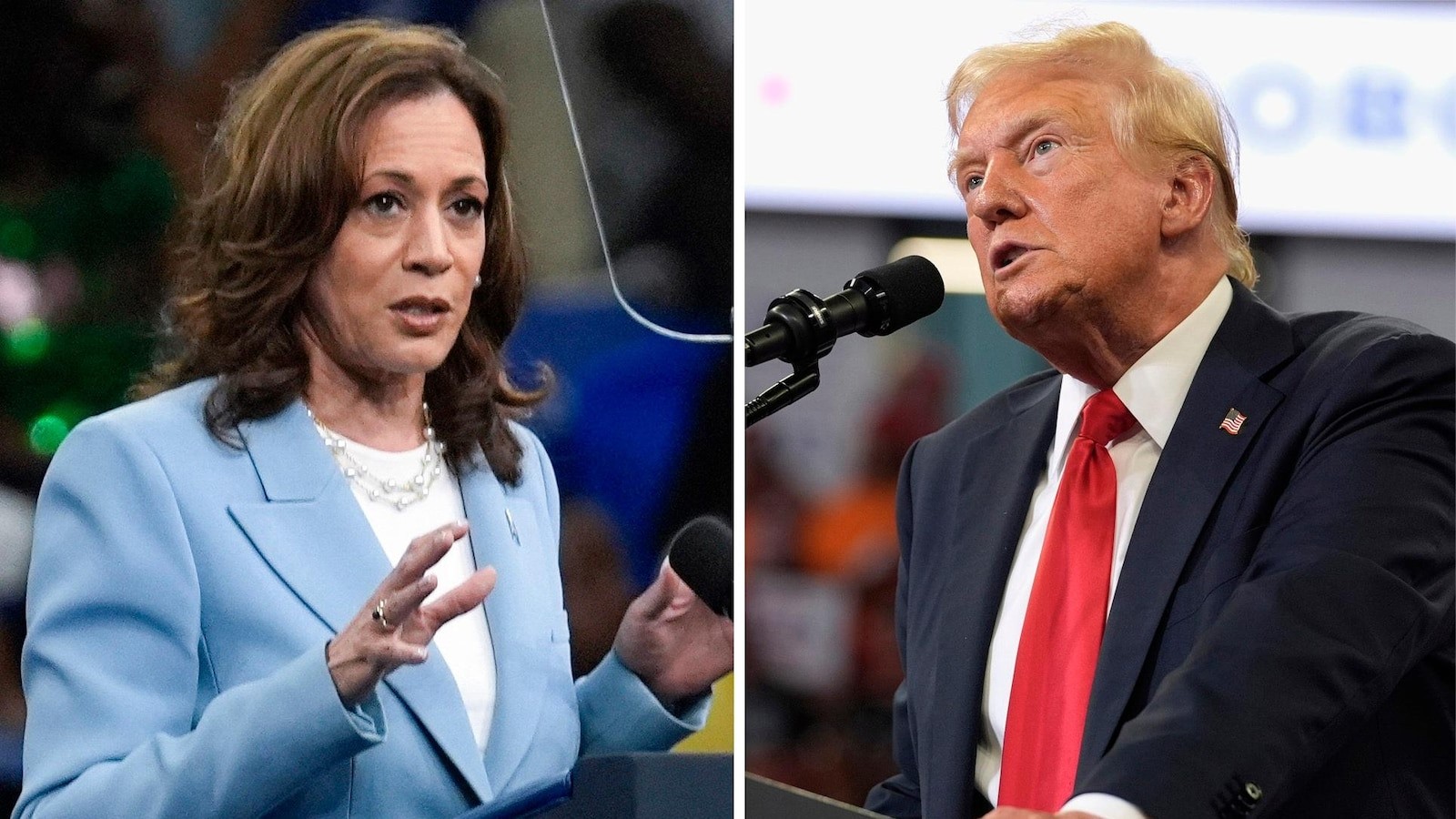US Election 2024: Latest Polls and Predictions
As the United States gears up for another presidential election in 2024, the political landscape is already abuzz with speculation, analysis, and early predictions. With a little over a year to go, the latest polls and predictions offer a glimpse into the potential outcomes and key dynamics that could shape the race. This article delves into the current state of the election, examining the frontrunners, key issues, and the evolving voter sentiment.
The Frontrunners
The 2024 presidential election is poised to be a highly competitive race, with both major parties fielding strong candidates. On the Democratic side, President Joe Biden is widely expected to seek re-election, although he has yet to make a formal announcement. Vice President Kamala Harris and other prominent Democrats, such as Transportation Secretary Pete Buttigieg and Senator Elizabeth Warren, are also considered potential contenders should Biden decide not to run.
For the Republicans, former President Donald Trump remains a dominant figure. Despite his controversial tenure and ongoing legal battles, Trump continues to have a strong base of support within the GOP. Other potential Republican candidates include Florida Governor Ron DeSantis, former Vice President Mike Pence, and South Carolina Senator Tim Scott. DeSantis, in particular, has gained significant attention for his handling of the COVID-19 pandemic and his stance on various cultural issues, positioning himself as a viable alternative to Trump.
Latest Polls
Recent polling data provides valuable insights into the current state of the race. According to a September 2023 poll by Gallup, President Biden’s approval rating stands at 44%, a slight improvement from earlier in the year but still below the 50% mark typically considered a strong position for an incumbent seeking re-election. The same poll indicates that 52% of Americans disapprove of Biden’s performance, reflecting ongoing concerns about inflation, immigration, and foreign policy.
On the Republican side, a Quinnipiac University poll conducted in August 2023 shows Donald Trump leading the GOP primary field with 40% support among likely Republican voters. Ron DeSantis follows with 25%, while Mike Pence and Tim Scott trail with 10% and 8%, respectively. These numbers suggest that while Trump remains a formidable force, there is a significant portion of the Republican electorate open to other candidates.
In hypothetical general election matchups, the race appears to be highly competitive. A recent NBC News poll indicates that in a Biden-Trump rematch, Biden holds a narrow lead with 48% to Trump’s 46%. However, when matched against DeSantis, Biden’s lead shrinks to 47% to 45%, highlighting the potential for a closely contested election.
Key Issues
Several key issues are likely to play a pivotal role in shaping voter preferences in the 2024 election. The economy remains a top concern for many Americans, with inflation and job creation at the forefront of the national discourse. The Biden administration’s handling of the economic recovery post-COVID-19 will be a critical factor in the election, as voters assess whether the current policies have improved their financial well-being.
Healthcare is another major issue, with debates over the affordability and accessibility of medical services continuing to resonate with voters. The Biden administration’s efforts to expand healthcare coverage through the Affordable Care Act and other initiatives will be scrutinized, as will the Republican candidates’ proposals for reform.
Immigration policy is also expected to be a significant point of contention. The ongoing challenges at the U.S.-Mexico border, including the influx of migrants and asylum seekers, have sparked heated debates. Both parties will need to articulate clear and effective strategies to address this complex issue, balancing humanitarian concerns with national security and economic considerations.
Foreign policy, particularly the U.S. stance on China and Russia, will be another critical area of focus. The Biden administration’s approach to international relations, including its handling of the Ukraine conflict and trade tensions with China, will be evaluated by voters seeking strong and stable leadership on the global stage.

Predictions
While it is still early in the election cycle, several political analysts and experts have begun to make predictions about the potential outcomes of the 2024 race. The Cook Political Report, a non-partisan election analysis organization, currently rates the presidential race as a “toss-up,” indicating a highly competitive contest with no clear frontrunner.
Nate Silver’s FiveThirtyEight, known for its data-driven approach to election forecasting, emphasizes the uncertainty inherent in early predictions. However, their models suggest that the election could hinge on a few key battleground states, such as Pennsylvania, Michigan, and Wisconsin, which were crucial in the 2020 election. These states, with their diverse electorates and shifting political dynamics, are likely to be the focal points of both campaigns.
Political pundits also highlight the potential impact of third-party candidates, who could draw votes away from the major party nominees and influence the overall outcome. The Libertarian and Green parties, as well as other independent candidates, may play a role in shaping the final results, particularly in closely contested states.
Conclusion
As the 2024 U.S. presidential election approaches, the latest polls and predictions underscore the complexity and competitiveness of the race. With key issues such as the economy, healthcare, immigration, and foreign policy at the forefront, voters will have much to consider as they evaluate the candidates and their platforms.
While early polling data provides valuable insights, it is essential to remember that much can change in the coming months. Political dynamics, unforeseen events, and shifts in voter sentiment will all play a role in determining the final outcome. As the campaigns intensify and the election draws nearer, staying informed and engaged will be crucial for all Americans as they prepare to cast their votes in this pivotal election.




